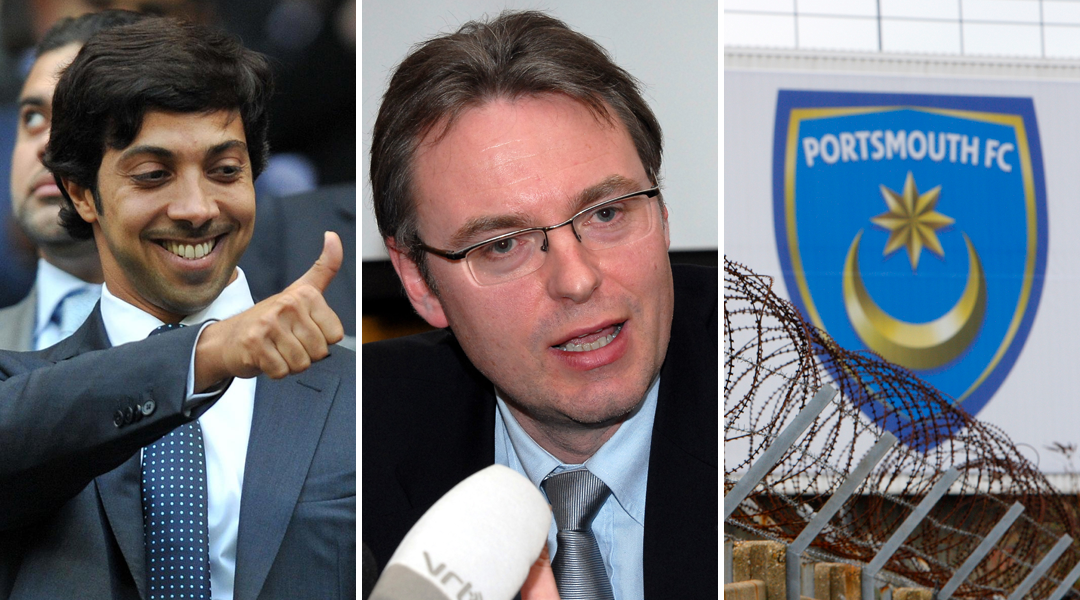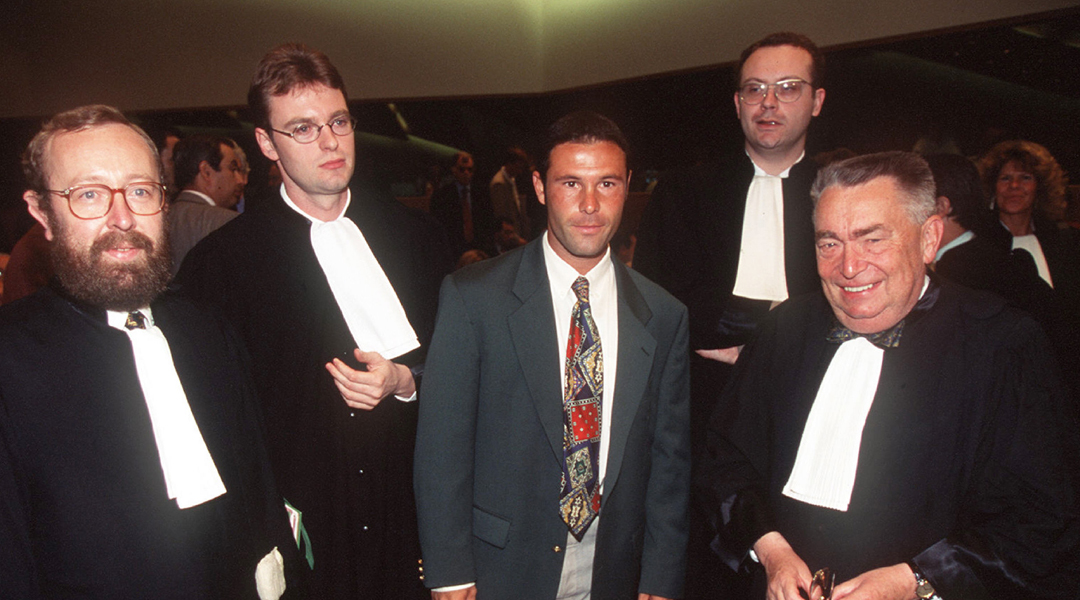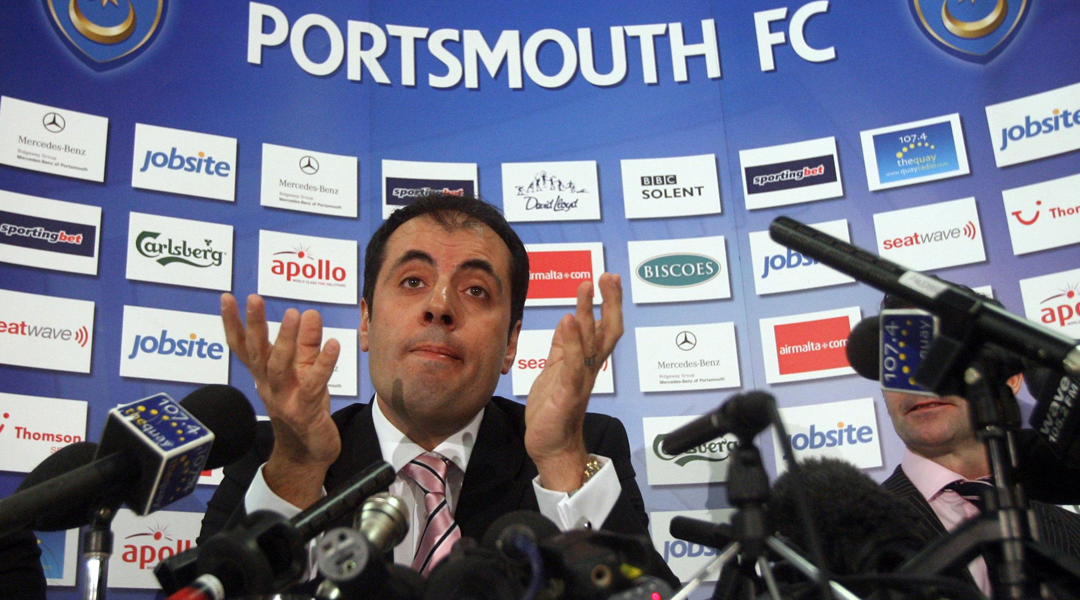Bosman lawyer battling FFP: We're happy with Man City, we don't want another Pompey
Put the money up front and charge a 10% luxury levy, says suit...

Jean-Louis Dupont may not be an immediately recognisable name to football lovers, but the impact this bespectacled lawyer has had on the game since 1995 is incalculable.
Back in 1990, Dupont was a fresh-faced University graduate, combining his fledgling law career with his work at the European Commission. Then he met a little-known Belgian footballer by the name of Jean-Marc Bosman. Now, almost 25 years later, he continues to be the scourge of the football authorities.
When UEFA chief Michel Platini heard that Dupont was helping another little-known Belgian resident - this time an Italian agent by the name of Daniel Striani - in a fight against UEFA’s Financial Fair Play legislation, he quipped that the lawyer was “bored” and “looking for work”.
If history has taught UEFA anything, however, it’s that it’s never wise to underestimate a man who has already changed the course of football once and has had a taste for it ever since. For his part, Dupont claimed that his Bosman challenge was never taken seriously by the football authorities.
“I thought it would be a pretty small case when we started,” he said. “But the authorities refused to take us seriously. That is partly why we added the restriction on foreign players to the case, although it was clearly a restraint of trade.”
In short, Dupont released the beast that European football has subsequently become – a beast that UEFA hoped Financial Fair Play (FFP) would help contain. According to the Belgian, however, it’s doing nothing of the sort.

“When UEFA say that they want every club to spend what they earn you say ‘Yes, this is right’,” he tells FourFourTwo. “But you need to go into precise economic and legal analysis in order to reach the conclusion that it does not work at all.
Get FourFourTwo Newsletter
The best features, fun and footballing quizzes, straight to your inbox every week.
“I know it looks like a good idea but it doesn’t work and it makes things worse.”
Dupont himself isn’t opposed to FFP as a means of preventing those who haven’t got the money from using football as a vanity project, before fleeing when the burden of debt gets too great. Ask any Portsmouth fan and they’ll tell you that might be a decent idea.
What he objects to is the idea that people who have the money and are able to spend the cash can’t – even if they can guarantee it.
Break-even
“We’re challenging one rule, which is the break-even rule,” he says. “This says that the owner of the club can’t overspend even if it is with his own money. This is not in line with EU law.”
The ‘break-even’ rule is perhaps the most fundamental element of FFP, but in the complaint filed with the European Commission in May 2013, Dupont outlines the impact it could have on almost every part of the game.
“The break-even rule prevents football clubs from freely determining their level of expenses, since it imposes a ceiling on their deficit, a limit to their investment, even if such deficit/investment is entirely covered by the owners. In particular, the clubs are limited in their freedom to hire players, since the break-even rule confines the amount of transfer fee and salaries clubs can offer.”
And the impact on the players?
“By the same token, some football players will not be transferred [as such transfers will not take place] and some players will be offered lower salaries. Even more, some players will not be offered a renewal of contract - even on lower conditions - or a first contract.”
Italian agent Striani rasied the complaint believing that he too will be hit by the regulations. So with another transfer window drawing to a close, what’s the alternative?

“That’s not for us to come up with,” says Dupont. “This is a matter for UEFA. But for the sake of the rationale, the current break-even rules mean that overspending is prohibited, it’s as simple as that. Yes, there are transitional rules but forget about it, the principle is that over-spending is prohibited.
Over-spending should be prohibited unless it is fully guaranteed in advanced. Put the money in the bank by the first of June for the next season"
“We say that over-spending should be prohibited unless it is fully guaranteed in advanced. We will say that we don’t want a Portsmouth but we’re happy with a Manchester City. If you’re the owner of a club that makes 100 (euros) but you want to inject an extra 50 (euros) every year, you can do that but you have to put the money in the bank by the first of June for the next season. Instead of prohibiting overspending you prohibit non-guaranteed over-spending.”
And for those clubs that do rely on their owners to dip into their own pockets every season, Dupont has a novel idea.
“Since you want to overspend with your own club, then for every euro or pound that you over-spend you will pay 10 or 15 cents as a ‘luxury tax’ so there will be some sort of solidarity fund that UEFA can spend for the good of the game,” he says.
Economic scholars in agreement
Of course, for every regulation there are loopholes and clubs across Europe are frantically doing all they can to jump through them. For Dupont though, the argument is simple, and he tells FFT that he’s merely carrying out the action that others have been calling for since FFP was first agreed upon in September 2009.
“It’s not just me saying that this makes sense, it’s all the economic scholars that have written about it too,” says Dupont. “All of them say that when you look at the two objectives that UEFA supposedly is pursuing, namely financial stability for club football and maintaining the integrity of the game, those two objectives are better served with this alternative system.
“And I’m just telling you what I read before we even lodged the complaint. If we win it’s not the end of anything, it’s just that instead of having this rule UEFA will be better placed to make it efficient. It’s not a liberal fight saying ‘no restraint of trade the owners should be able to do what they want’.”
It was Eric Morecambe who memorably told Andre Previn that he was “playing all the right notes, but not necessarily in the right order.” Now Dupont believes its UEFA that is out of tune with popular and academic opinion. “UEFA are fighting against the right problem,” he says. “But with the wrong answer.”
